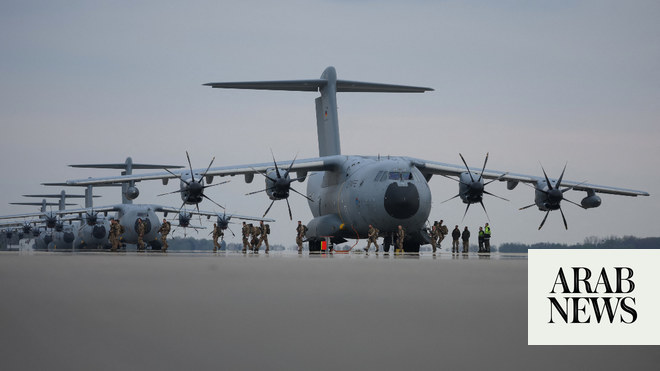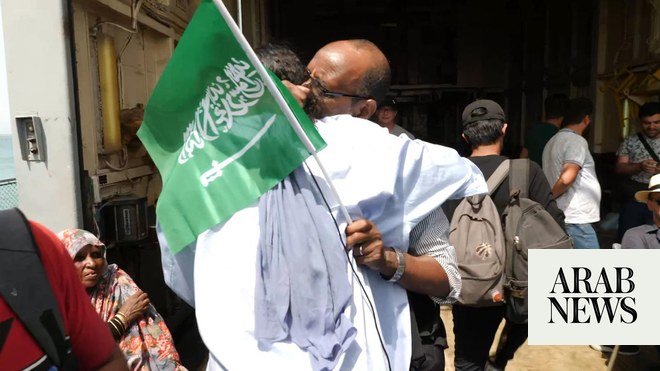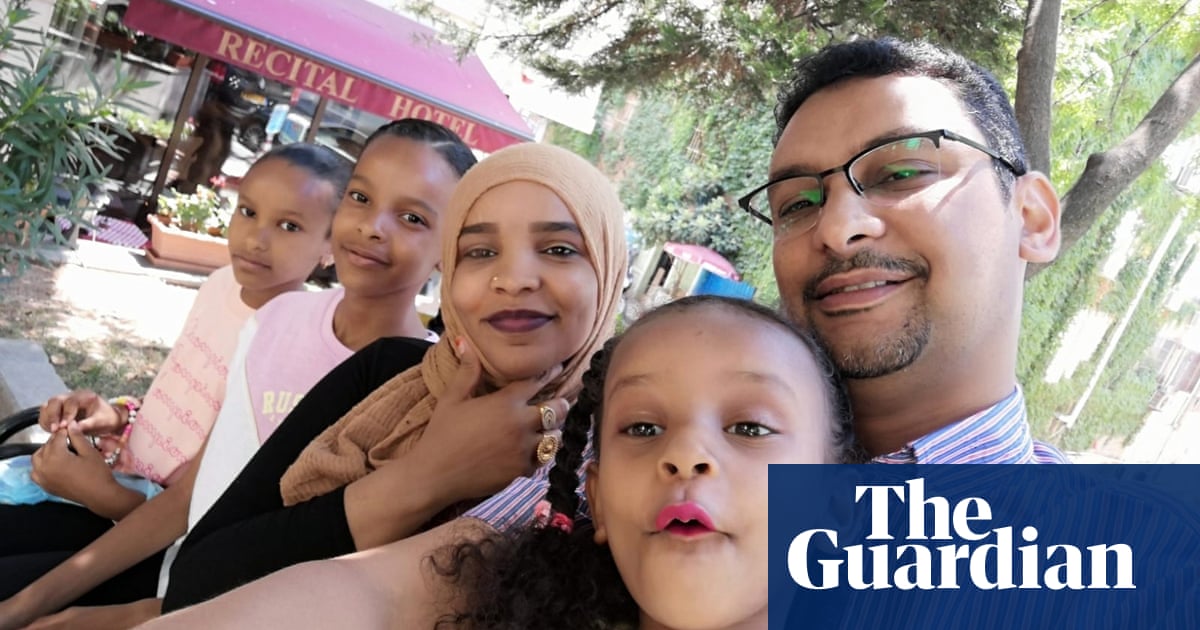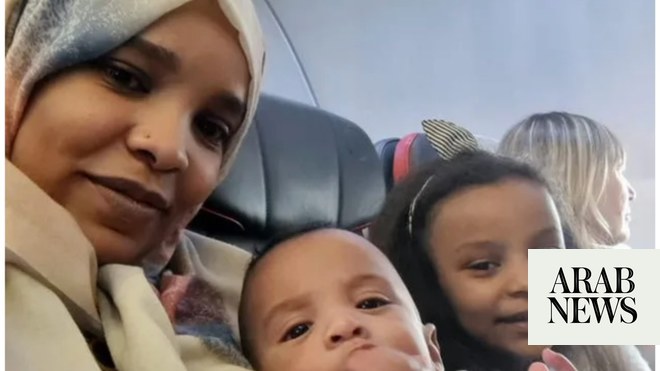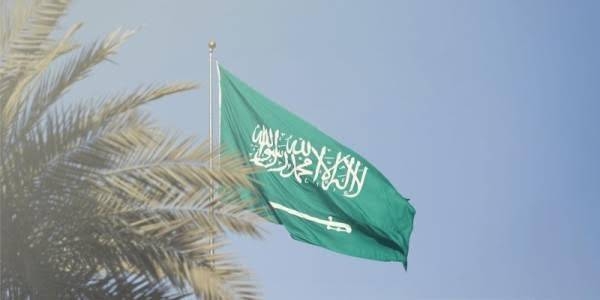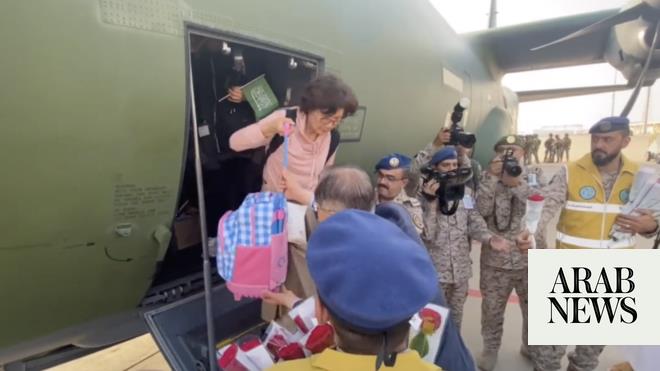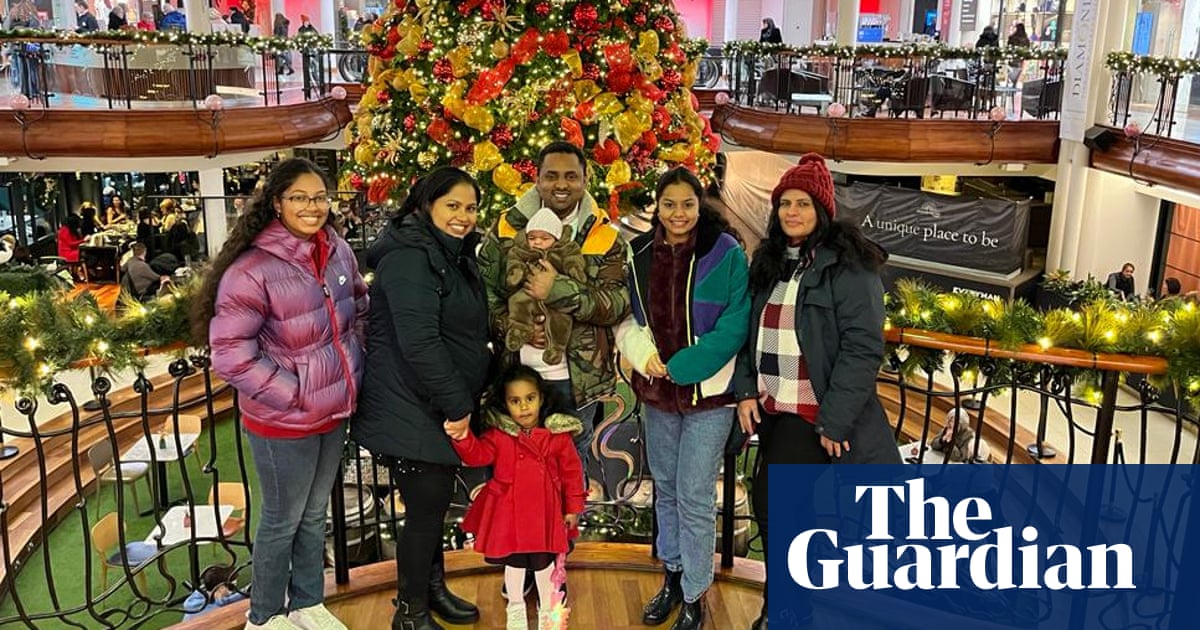
Two NHS doctors who escaped from Sudan are now stuck in Saudi Arabia, unsure if or when the British government will allow them to also bring home immediate family members who were forced to flee the fighting in the country.
Sabreen Elbakri and her husband, Mohammed Fadelalla, who are registrars in Dundee and Glasgow respectively, escaped from Khartoum more than a week ago after night-time bombing “shook our house”. They took with them her young British children and her Sudanese mother and two sisters.
Unaware the UK intended to operate evacuation flights from near the Sudanese capital, they undertook a risky 500-mile, 12-hour journey to Port Sudan, from where they were picked up by a Saudi ship and taken to Jeddah.
Elbakri said: “We had 10 days without electricity and water, no fresh food and milk for the kids, and the British embassy had said there were no plans for an evacuation.” They only discovered flights for UK civilians had begun from an airfield north of Khartoum once they had reached Port Sudan by bus.
At that point they did not want to risk going back, having passed through several paramilitary Rapid Support Forces checkpoints – “where my husband was searched and asked for ID numerous times. I did not want to risk him being taken away.”
In any event, the couple would not have been eligible for immediate evacuation because for the first five days only Britons, their spouses and their children aged under 18 were eligible. Sudanese NHS doctors would only have been allowed to fly out on Saturday.
Elbakri said they had heard of other NHS doctors being turned away at the airfield, while “the Saudis were evacuating people of all nationalities” from Port Sudan to Jeddah, although the boat journey ended up taking 24 hours.
They are now part of a group of Britons or British residents stuck in Saudi Arabia hoping to obtain UK tourist visas for immediate family members fleeing the war, but Elbakri said “the consulate is overwhelmed”.
“Every time I call, they direct me to another team, ask again for references and pictures of our passports, and they say they can’t say how long it will take to process visa applications,” she said.
The Foreign Office told the Guardian it did not know how many Britons or people eligible to live and work in the UK were stuck in Jeddah, although on Sunday, the British ambassador to Saudi Arabia visited people hoping for help.
Neil Crompton tweeted he was in Jeddah, hearing “moving personal stories” of Britons who, like Elbakri and her family, had made risky escapes from the fighting. He thanked Saudi authorities for providing a “safe haven”.
The UK has said there are no plans to provide a resettlement route for people fleeing from Sudan, as happened with Ukraine and Afghanistan. But the Home Office says Sudanese people can apply for 180-day tourist visas for a shorter stay.
Elbakri said: “I can’t leave my mother and sisters behind. At least if I can bring them with me, I can [cut short maternity leave to] go back to work and support them financially. If Sudan calms down, they can just go back. We just need time to work out what to do.”
About two dozen NHS doctors were trapped in Sudan by the fighting. Many were visiting relatives for Ramadan when fighting broke out.
Elbakri, 32, came to Britain nearly six years ago and is a general registrar with Dundee’s Tayside trust, while Fadelalla, 33, works in neurosurgery at the Queen Elizabeth hospital in Glasgow. She said they both hoped to become British citizens, adding: “The NHS has been good to us, and given us a lot of support and training.”
A UK government spokesperson said: “The UK has carried out by far the longest and largest evacuation of any western country from Sudan, bringing 2,341 people out in under one week.” They said the country was always “open to British nationals and their eligible family members, with a later exemption for NHS clinicians”.




